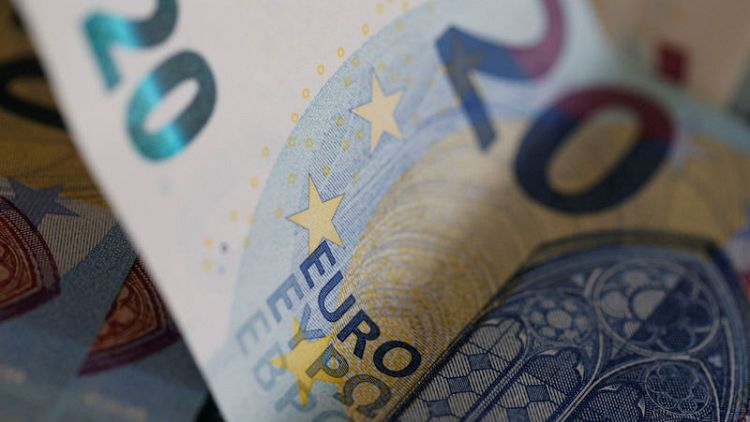By Virginia Furness
LONDON (Reuters) - German government bond yields fell to their lowest in almost a week after Monday's brutal session for U.S. stocks drove five-year U.S. Treasury yields to their lowest since May and triggered losses on Asian and European bourses on Tuesday.
U.S. stocks <.SPX> were actually up on Tuesday, but only after having dropped to their lowest levels in more than a year the previous session.
European markets <.STOXX> followed suit, prompting a bid for safe-haven assets before a Federal Reserve meeting in which policymakers are widely expected to raise interest rates.
"Europe is catching up on the price action (in the U.S.), and the technical picture is that further weakness could be forthcoming," said ING rates strategist Martin van Vliet.
Indeed, key European growth indicators were not encouraging on Tuesday.
Oil prices were substantially down, with U.S. crude falling to its lowest level since September last year <.CLc1> helping to push back European inflation expectations.
A key market gauge of long-term inflation expectations, the five-year five-year forward swap <EUIL5YF5Y=R>, fell to its lowest in over a year.
Investors are now pricing in less than a 50 percent chance of an ECB rate hike next year, money market futures show. <ECBWATCH>.
German data on Tuesday also pointed to cooling growth, after Ifo data showed the business climate in Europe's largest economy deteriorating.
Germany's 10-year bond yield fell to a one-week low of 0.229 percent, before ending the day at 0.24 percent <DE10YT=RR>.
Five-year U.S. Treasury yields fell over four basis points to 2.653 percent <US5YT=RR>, their lowest since May.
The Federal Reserve ends its two-day meeting on Wednesday, and investors expect it to raise interest rates. However, many now believe economic turbulence will prompt the Fed to signal a slowdown in rate increases next year.
"Markets are starting to price out the expectation of rate hikes to come," said Rainer Guntermann, rates strategist at Commerzbank. "Our base case is a rate hike this week, then we expect the Fed to pause after that."
Other highly-rated euro zone bond yields, including France, were between two and four basis points lower <IE10YT=RR>, <AT10YT=RR>.
French bond yields have risen in recent weeks after President Emmanuel Macron was forced to appease protesters with extra spending plans, leading to concern that France's budget deficit would breach European Union rules.
However, European Economic Commissioner Pierre Moscovici reiterated that France's expected overshooting of the EU's deficit ceiling -- 3 percent of gross domestic product -- would be tolerable if it was just a temporary measure.
France's 10-year government bond yield dipped 3 basis points to 0.71 percent <FR10YT=RR>.
Italian government bond yields rose briefly, then fell to trade close to Monday's close, after a deal with the European Commission over its rejected 2019 budget did not materialise.
In addition, the newspaper Corriere della Sera reported that the Commission had asked for further cuts, seeking 2.5 billion to 3 billion euros ($2.84 billion to $3.40 billion) in savings, before approving Italy's 2019 budget.
($1 = 0.8794 euros)
(Reporting by Virginia Furness, editing by Larry King and Ed Osmond)



